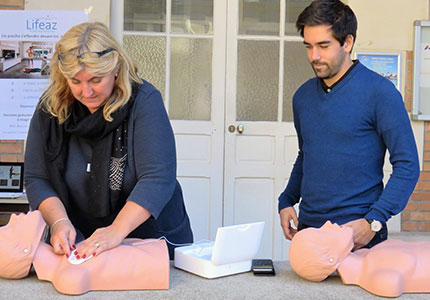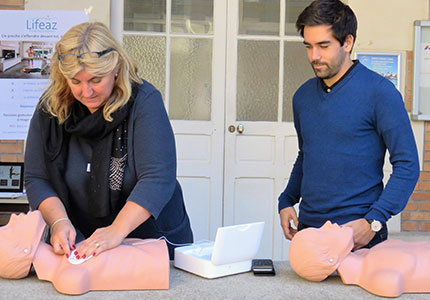*Written by Johann Kalchman, the Co-Founder and CEO of Lifeaz.
It’s a strange quirk of modern life that many people identified as at extremely high risk of cardiac arrest are more likely to survive a cardiac arrest than those of us apparently at low risk.
This is because we possess the technology to respond to cardiac arrest but it is so scarcely deployed and so little understood that if you suffer a sudden attack on the street your chances of survival are as low as five per cent.
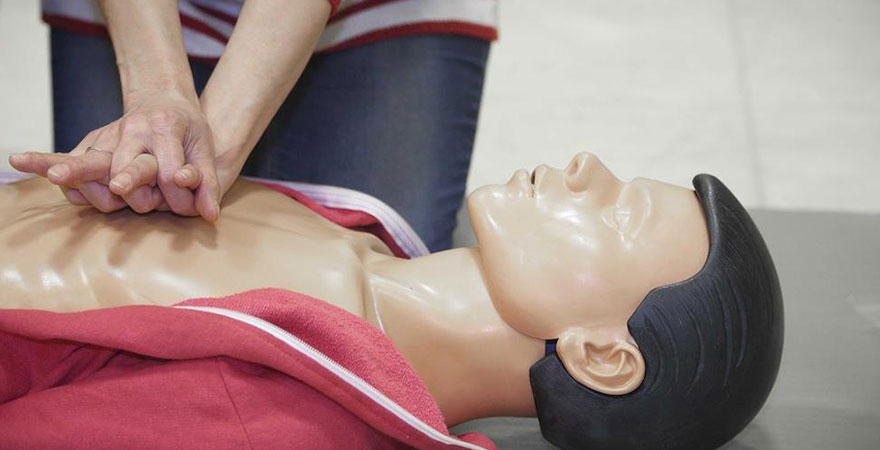
Whereas those at very high risk have access to implanted defibrillators that mean they are well protected.
For 30 years we have had the defibrillator technology to provide effective treatment in this area - and yet far too many people are dying. If you collapse in the street there is a four-minute window in which treatment can save your life; but emergency services take an average of 15 minutes to arrive on the scene.
I have spent my career in this industry. At the Italian-French company Sorin Group I worked on developing implantable defibrillators for patients with a history of cardiac problems. Today I work for my own start-up as the Co-Founder and CEO of Lifeaz, where we are developing a new generation of connected defibrillators made for the citizen, at home, at the office or in the street.
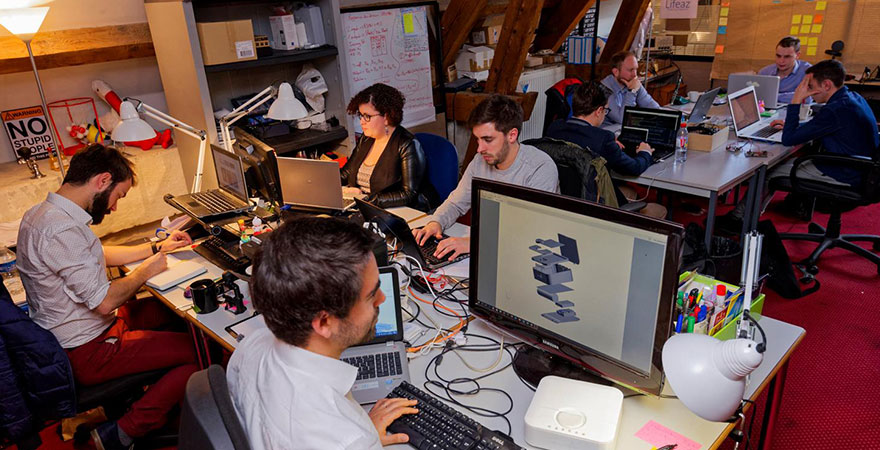
We are providing the tools and the training to enable responsible citizens to act and save lives in those crucial first few minutes after cardiac arrest, without waiting 15 minutes for the rescue services.
First the tools. Today’s defibrillators are expensive and hard to locate. Many of those who own them are not sure that they are properly maintained.
The devices can cost Euros€ 1,200-2,500 and that does not include maintenance. Every two-three years you must change the defibrillator’s electrodes, which costs about Euros€ 200, and every four years you must replace the battery - a further Euros€ 200. Some distributors offer regular maintenance checks, and renewal of consumables and it will cost around Euros€ 70-a-month.
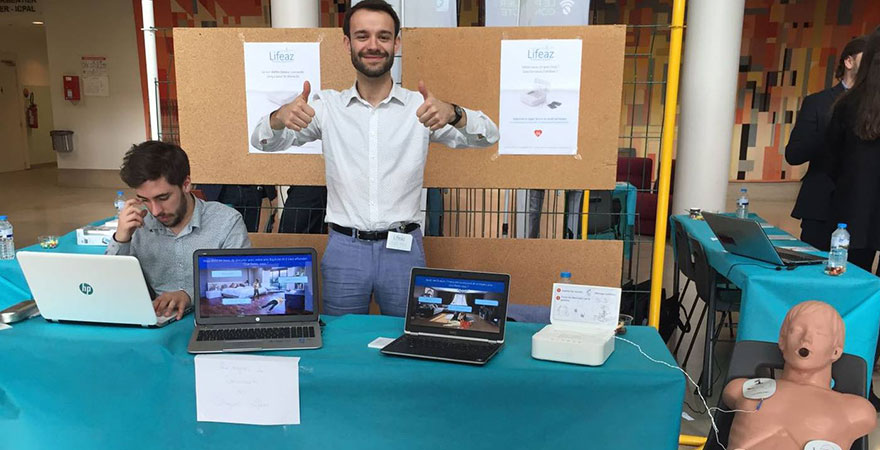
The danger is that owners who have had no cause to use their defibrillators will allow them to become unworkable. That’s worse than not having a defibrillator at all. Because if you think you have a defibrillator that you can use and it’s not functional you will panic and lose time. It’s like a dysfunctional fire extinguisher - you will try to put out the fire and it doesn’t work, which is worse than simply leaving the house and making yourself safe.
At Lifeaz we are developing a smart connected defibrillator that will give owners automatic alerts when there are any problems with the electrodes or battery. We send you new batteries and electrodes and make sure they have been properly changed. It’s an all-inclusive arrangement, where we provide the device, its maintenance and training for your family or employees or neighbours.
Training is the other priority. Today people don’t know what to do when they see a cardiac arrest so they don’t act at all. At best, they will call the emergency services but we really need them to be in a position to act themselves.
Part of the problem is that there are not enough defibrillators. They are not a feature of everyday life and if you want one you probably don’t know where to find one.
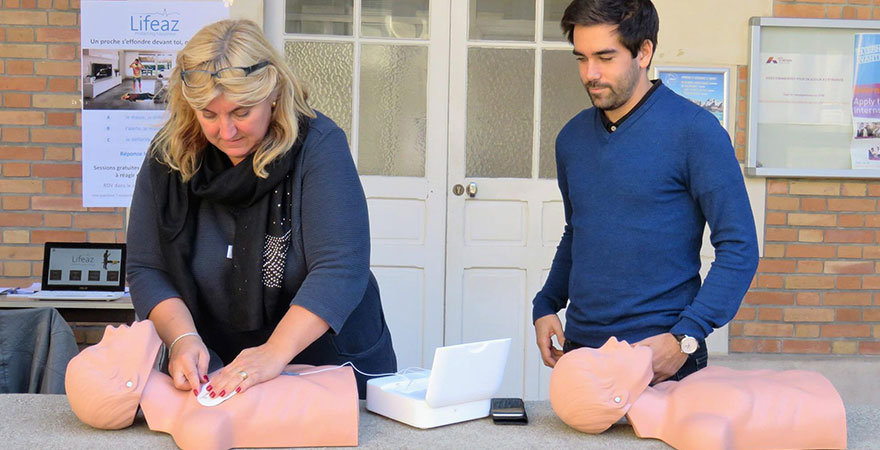
Today’s defibrillator market is focused on public places and institutions and big companies, which are (often wrongly) warned that they could be held responsible if someone collapses on their premises.
Our vision is very different. We believe anyone can be a hero if you give him or her the training and technology. We are making defibrillators accessible for any small company and anybody who wants to act and save a life.
They should be available anywhere, in pharmacies, bakeries, or in your building, so that if something happens in the street you can enter any shop and find a defibrillator and someone who has been trained.
We want communities to support their citizens in this aim. Anould, a town in north-eastern France, is one of our early champions, with the mayor supporting the training of the local population so that they can act and save lives. We are working together to make this place an example in France and Europe. And we are working with several other cities in order to replicate this model.
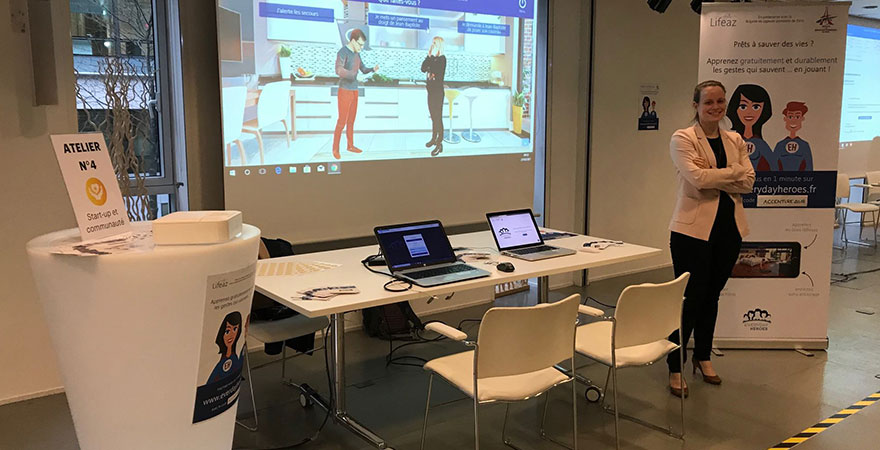
Since the beginning of 2017 we have been working with the Parisian firefighters, the biggest intervention unit in Europe, on a digital platform called Everyday Heroes. So far, it’s in French and it will soon be in English.
This platform is totally reinventing the way the way we learn first aid - it is digital, free and gamified. We want it to be fun for users and a regular activity in their lives.
You play for just five minutes a week but the memorisation technology is extremely effective.
Users are not only learning how to react to cardiac arrests, stroke, burns, motorcycle accidents and sports field injuries.
The idea is not simply to make people buy a defibrillator but to train an army of people in this life-saving technology. That’s the way to make a defibrillator more impactful. You have people living and working around it who will run towards it and not hesitate to use it. Inside four minutes.
